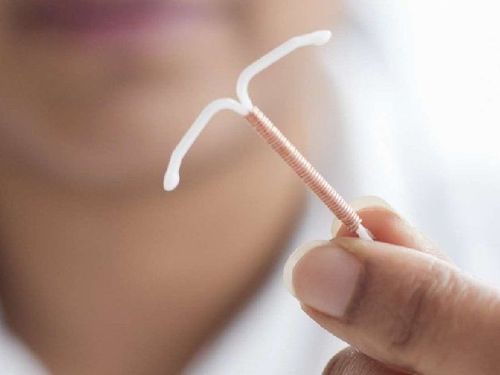Expert Consultation Provided By: Level I Specialist Dr. Nguyen Thi Man, Obstetrics and Gynecology Specialist, Vinmec Da Nang International General Hospital
For pregnancies under 9 weeks, two main abortion methods are available: medication abortion and suction abortion. However, medication abortion during breastfeeding can affect the quality of breast milk.
1. Is Medication Abortion Safe While Breastfeeding?
Many women with infants under 1 year of age may unexpectedly become pregnant due to the absence of effective contraception. In such cases, some parents decide to terminate the pregnancy using medication abortion. But is this method safe for breastfeeding mothers and their infants?
During pregnancy, the body continues to produce breast milk, which is not affected by the pregnancy itself.
However, breast stimulation during breastfeeding can trigger mild uterine contractions. This is typically harmless but may pose risks for women with a history of miscarriage or preterm labor.
For women who have decided not to keep the pregnancy, this should be carefully considered. If you decide to choose medical abortion, this method is quite safe for fetuses under 3 months old, and women do not have any internal medical conditions.
Currently, several protocols for medication abortion exist worldwide, such as:
Using Misoprostol alone.
Combining Methotrexate and Misoprostol.
The most common protocol involves combining Mifepristone and Misoprostol.

Mifepristone and Misoprostol are not recommended for breastfeeding women because scientists have not yet determined the extent to which these drugs are present in breast milk or their effects on the child.
Mifepristone is quickly absorbed orally, with a half-life of 18 hours, and remains in the bloodstream for 25–40 hours. It is metabolized in the liver and excreted predominantly through the feces.
Misoprostol is also rapidly absorbed orally, peaking after 30 minutes and decreasing within 2 hours. Vaginal administration has a slower absorption rate, peaking after 1.5 hours and gradually decreasing over 4 hours.
Thus, breastfeeding mothers are advised against medication abortion due to unknown effects of these drugs on breast milk and infants. Women can stop breastfeeding temporarily while using abortion medications. After 5–7 days, once the drugs are fully cleared from the blood, breastfeeding can resume.
However, discontinuing breastfeeding may lead to a decrease in milk supply. Therefore, breastfeeding mothers considering an abortion should consult an obstetrician as early as possible to determine the best course of action.
2. Safe Abortion Methods for Breastfeeding Mothers
If a breastfeeding mother discovers she is pregnant, doctors do not encourage abortion. However, in exceptional circumstances, a suction abortion can be performed.
For pregnancies under 9 weeks, the two main abortion methods are:
Medication abortion.
Suction abortion (manual vacuum aspiration).
Medication abortion is not recommended for breastfeeding mothers due to its potential effects on breast milk. Instead, suction abortion is considered safer and more appropriate.
Based on the mother’s and infant’s health, the doctor will determine the appropriate timing for the procedure. After the suction abortion, the mother will need to take antibiotics to prevent infections. During this period, breastfeeding should be temporarily stopped.
3. Contraceptive Methods to Prevent Unplanned Pregnancies

After childbirth, engaging in sexual activity without proper contraception can result in pregnancy. Couples who do not wish to conceive should adopt safe contraceptive methods to avoid unintended pregnancies.
Safe Contraceptive Methods for Breastfeeding Mothers
1. Condoms:
The most effective and safe option for breastfeeding mothers.
This method does not affect breast milk and has a high success rate in preventing pregnancy.
2. Intrauterine Device (IUD):
After the uterus recovers post-delivery, women can consider an IUD.
This method is effective for up to 5 years and does not affect breast milk production.
3. Contraceptive Implants:
A relatively new method, considered effective but not widely studied.
4. Emergency Contraceptive Pills:
Not recommended for breastfeeding mothers, as these pills can impact maternal health and breast milk quality.
Medication abortion is not a safe option for breastfeeding mothers due to its potential impact on breast milk quality.
For mothers who need to terminate a pregnancy, it is essential to consult a trusted obstetrician for advice and appropriate care.
About Level I Specialist Dr. Nguyen Thi Man:
Former Head of Obstetrics and Gynecology at Tam Tri Da Nang General Hospital.
Former Head of IUI Unit (Intrauterine Insemination) at Hoan My Da Nang Hospital.
Over 10 years of experience in diagnosing, counseling, and treating gynecological conditions, including:
Infertility consultations and assisted reproductive techniques (ovulation induction, IUI).
Gynecological screening, ultrasounds, and treatments.
Laparoscopic surgery for ovarian cysts and ectopic pregnancies.
For more health, nutrition, and beauty tips, visit Vinmec International General Hospital to safeguard the health of yourself and your loved ones.
To arrange an appointment, please call HOTLINE or make your reservation directly HERE. You may also download the MyVinmec app to schedule appointments faster and manage your reservations more conveniently.














